Ford Mustang (1999-2004) Service Manual: Timing Chain
Removal
1. Remove the timing cover. For additional information, refer to Engine Front Cover in this section.
2. Remove the camshaft position sensor drive gear.
1. Remove the bolt.
2. Remove the camshaft position sensor drive gear.
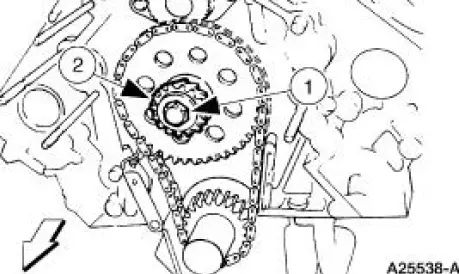
3. Rotate the crankshaft (6303) until the timing marks and keyways align.
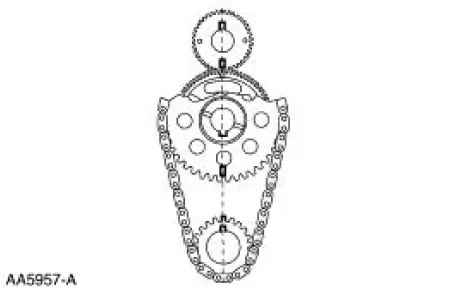
4. Compress and install a retaining pin to hold the timing chain tensioner (6L266).
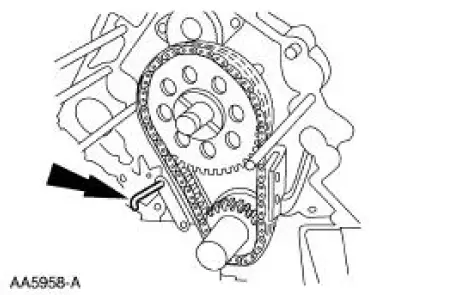
5. Remove the camshaft sprocket (6256), the crankshaft sprocket (6306) and the timing chain/belt (6268) as an assembly.
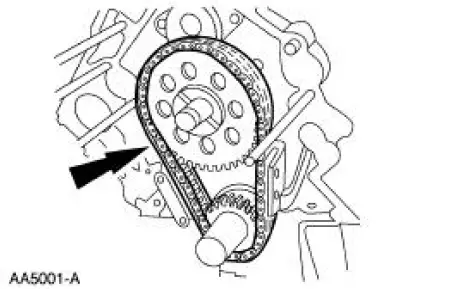
6. Remove the timing chain tensioner.
1. Remove the bolts.
2. Remove the timing chain tensioner.
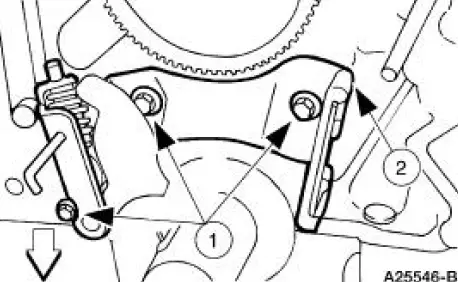
Installation
1. Install the timing chain tensioner.
1. Position the timing chain tensioner.
2. Install the bolts.
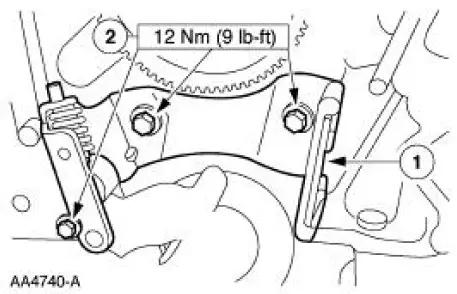
2. Rotate the crankshaft so the number one piston (6108) is at top dead center (TDC) and the key is at the 12 o'clock position.
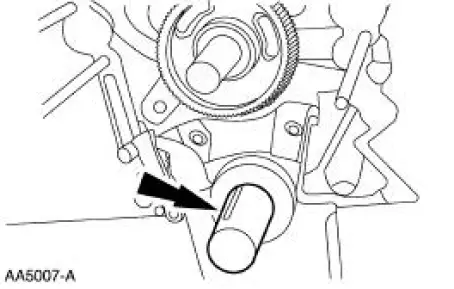
3. If necessary, retract the tensioner pad retracting mechanism.
1. Compress the tensioner pad retracting mechanism.
2. Insert a retaining pin.
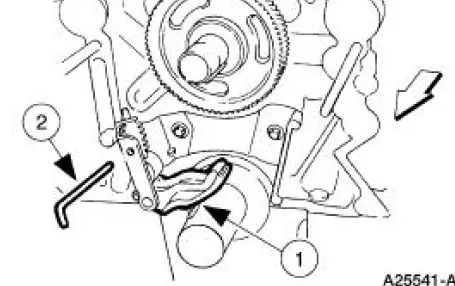
4. Turn the camshaft sprocket so that the timing mark is on the bottom of the balance shaft (6250).
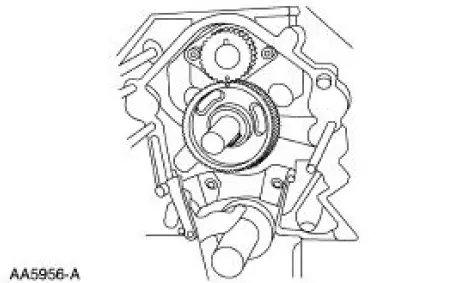
5. Install the timing chain, the camshaft sprocket and the crankshaft sprocket.
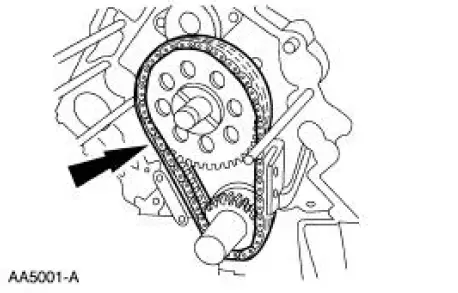
6. Make sure that the timing marks and the keyways are aligned.
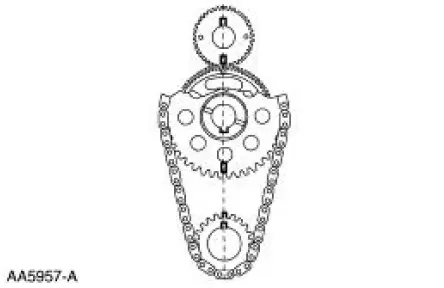
7. Install the camshaft position sensor drive gear.
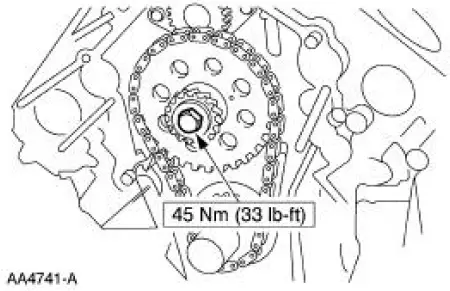
8. Remove the retaining pin.
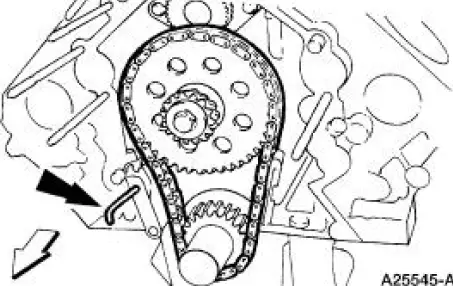
9. Install the engine front cover. For additional information, refer to Engine Front Cover in this section.
 Engine Dynamic Balance Shaft
Engine Dynamic Balance Shaft
Removal
1. Remove the timing chain (6268). For additional information, refer to
Timing Chain in this
section.
2. Disconnect and position the wire harness aside.
3. Remove the radiator fan and ...
 Exhaust Manifold - LH
Exhaust Manifold - LH
Removal
1. Raise and support the vehicle. For additional information, refer to
Section.
2. Remove the LH exhaust manifold flange nuts.
3. Remove the RH exhaust manifold flange nuts.
4. Lower ...
Other materials:
Clutch Pedal - Quadrant and Pawl Assembly
Removal
1. Disconnect the battery ground cable (14301).
2. Loosen the nut from inside the engine compartment.
3. Loosen the nuts from inside the vehicle.
4. Loosen the screw.
5. Disconnect the brake pedal position (BPP) switch electrical connector.
...
Spring Lock Couplings
Special Tool(s)
Disconnect Tool, Spring Lock
Coupling (3/8 inch yellow)
310-D004 (D87L-9280-A) or
equivalent
Disconnect Tool, Spring Lock
Coupling (1/2 inch green)
310-D005 (D87L-9280-B) or
equivalent
Material
Item
...
Ignition Coil-On-Plug
Material
Item
Specification
Silicone Brake Caliper Grease
and Dielectric Compound
D7AZ-19A331-A or equivalent
ESE-M1C171-
A
Removal and Installation
1. Disconnect the battery ground cable. For additional information, refer
to Section ...
